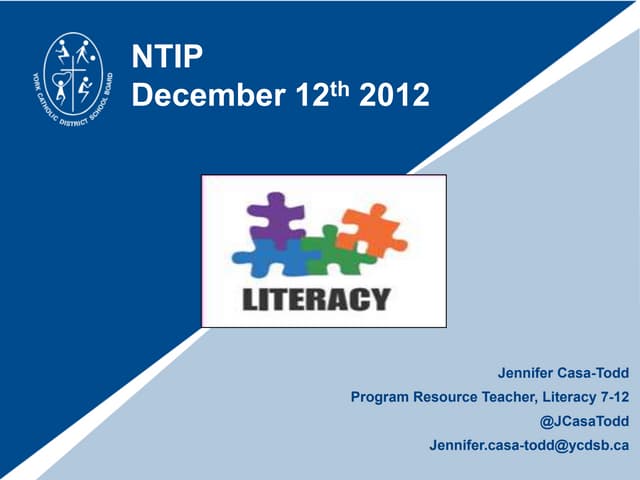How To Break Bread With Scholars: Tips For Engaging In Academic Conversations

Table of Contents
Understanding the Academic Landscape
Engaging effectively in academic conversations requires understanding the diverse landscape of academia. Different fields communicate in distinct ways, and recognizing these differences is crucial for successful interaction.
Different Disciplines, Different Styles
Communication styles vary dramatically across disciplines. The humanities often favor nuanced interpretations and lengthy discussions, while STEM fields prioritize precise data and concise explanations.
- Humanities: Emphasis on interpretation, theoretical frameworks, and philosophical debate; often utilize more informal language in informal settings.
- STEM: Emphasis on empirical evidence, data analysis, and precise terminology; communication tends to be more formal and data-driven.
- Social Sciences: A blend of both, using quantitative and qualitative methods, leading to a varied communication style.
Understanding these differences is paramount. Approaching a physicist with the same conversational style you'd use with a literary theorist could lead to miscommunication. Respecting the specific conventions of each field demonstrates your awareness and seriousness, crucial aspects of successful academic engagement.
Decoding Academic Jargon
Academic discourse often involves specialized terminology. Encountering unfamiliar terms is inevitable, but don't let it deter you.
- Look it up: Utilize online dictionaries, encyclopedias, or specialized glossaries to define unfamiliar terms before or during the conversation.
- Ask clarifying questions: Don't hesitate to politely ask for clarification on terms or concepts you don't understand. This shows genuine interest and a desire to engage meaningfully.
- Contextual clues: Pay close attention to how the term is used within the conversation; this can often offer clues to its meaning.
Never feel ashamed to ask for clarification; a genuine desire for understanding is valued far more than pretending to comprehend something you don't.
Preparing for Meaningful Engagement
Successful academic conversations require preparation. Thorough research demonstrates respect and allows for a more informed and engaging exchange.
Doing Your Homework
Before engaging with a scholar, invest time in understanding their work.
- Read their publications: Familiarize yourself with their key publications, research interests, and recent projects. This demonstrates that you value their expertise and are genuinely interested in their perspectives.
- Browse their website: Most academics have personal or institutional websites that outline their research interests and publications.
- Check relevant databases: Explore academic databases like JSTOR, Google Scholar, or Web of Science to discover their contributions to the field.
This preparatory work builds the foundation for a more substantive and respectful conversation.
Formulating Thoughtful Questions
Prepare insightful questions that encourage discussion rather than simple yes/no answers.
- Open-ended questions: Instead of asking "Do you agree with X?", try "What are your thoughts on the implications of X, given Y?"
- Specific questions: Refer to specific aspects of their work or publications to demonstrate that you have engaged with their research.
- Thought-provoking questions: Pose questions that challenge assumptions or explore new perspectives.
Well-crafted questions demonstrate your engagement and encourage deeper dialogue. Avoid questions that sound rehearsed or lack genuine intellectual curiosity.
Mastering the Art of Conversation
Participating effectively in academic conversations involves active listening and respectful discourse.
Active Listening and Respectful Discourse
Active listening is key to any meaningful conversation, especially within the academic community.
- Make eye contact: Maintain eye contact to show engagement and attentiveness.
- Summarize points: Paraphrase what the speaker has said to confirm your understanding and demonstrate active listening.
- Ask clarifying questions: Clarify any points you don't fully understand before moving on.
- Show respect for differing viewpoints: Even when disagreeing, express your points respectfully and acknowledge the validity of differing perspectives.
Active listening is not just about hearing; it's about understanding and engaging with the speaker's ideas.
Participating Respectfully in Debates
Disagreements are inevitable in academic discussions. However, expressing dissent respectfully is crucial.
- Use "I" statements: Frame your disagreements in terms of your own perspective ("I understand your point, but I have a different interpretation based on...")
- Focus on ideas, not personalities: Critique the arguments, not the person making them.
- Use polite phrasing: Employ phrases like "I see your point, but I would argue that...", or "While I respect your perspective, I believe..."
Respectful disagreement leads to more productive and enriching conversations.
Building Connections and Networking
Engaging in academic conversations is not merely about the immediate exchange; it's also about building relationships and expanding your network.
Following Up After Conversations
Following up after a conversation solidifies the connection and demonstrates your genuine interest.
- Send a thank-you note or email: Express gratitude for the conversation and mention specific points you found insightful or thought-provoking.
- Reference specific details: Show that you were actively listening and engaged by referencing specific topics or arguments discussed.
- Maintain contact: Consider adding the scholar to your professional network on platforms like LinkedIn.
These simple gestures can lead to lasting professional relationships.
Leveraging Academic Networking Events
Conferences, workshops, and seminars provide opportunities for informal engagement with scholars.
- Attend conferences: These offer structured opportunities for interaction through presentations and networking events.
- Participate in workshops: Smaller, more focused workshops allow for more intimate conversations.
- Attend seminars: Seminars offer opportunities to engage with scholars in a less formal setting.
These events provide a more relaxed environment for initiating conversations and building rapport.
Conclusion
Engaging in academic conversations is a rewarding process that enhances intellectual growth and professional development. By understanding the academic landscape, preparing adequately, engaging respectfully, and building connections, you can foster meaningful dialogue and expand your network. By following these tips, you can confidently break bread with scholars, enriching your understanding and building lasting connections within the academic community. Start engaging in academic conversations today!

Featured Posts
-
 Rogues Cyclops Like Power Surge In New X Men Comics
May 08, 2025
Rogues Cyclops Like Power Surge In New X Men Comics
May 08, 2025 -
 Superman Footage Reaction Forget Krypto This Moment Is Key
May 08, 2025
Superman Footage Reaction Forget Krypto This Moment Is Key
May 08, 2025 -
 Ethereum Price Analysis 2 700 Target In Sight As Accumulation Phase Concludes
May 08, 2025
Ethereum Price Analysis 2 700 Target In Sight As Accumulation Phase Concludes
May 08, 2025 -
 Made In Gujranwala Exhibition Sufians Appreciation For Gcci Presidents Efforts
May 08, 2025
Made In Gujranwala Exhibition Sufians Appreciation For Gcci Presidents Efforts
May 08, 2025 -
 Bitcoin Rally Starting Analysts Chart Highlights Key Zones May 6 2024
May 08, 2025
Bitcoin Rally Starting Analysts Chart Highlights Key Zones May 6 2024
May 08, 2025
Latest Posts
-
 Jysws Wflamnghw Alshmrany Yelq Ela Alsfqt Almrtqbt Fydyw Hsry
May 09, 2025
Jysws Wflamnghw Alshmrany Yelq Ela Alsfqt Almrtqbt Fydyw Hsry
May 09, 2025 -
 Lakers Vs Celtics Abc Promo Tnt Announcers Hilarious Take On Jayson Tatum
May 09, 2025
Lakers Vs Celtics Abc Promo Tnt Announcers Hilarious Take On Jayson Tatum
May 09, 2025 -
 Colin Cowherds Continued Criticism Of Jayson Tatum
May 09, 2025
Colin Cowherds Continued Criticism Of Jayson Tatum
May 09, 2025 -
 Ray Alshmrany Fy Antqal Jysws Lflamnghw Thlyl Shaml
May 09, 2025
Ray Alshmrany Fy Antqal Jysws Lflamnghw Thlyl Shaml
May 09, 2025 -
 Abc Promo Features Hilarious Tnt Commentary On Jayson Tatum During Lakers Celtics Game
May 09, 2025
Abc Promo Features Hilarious Tnt Commentary On Jayson Tatum During Lakers Celtics Game
May 09, 2025
